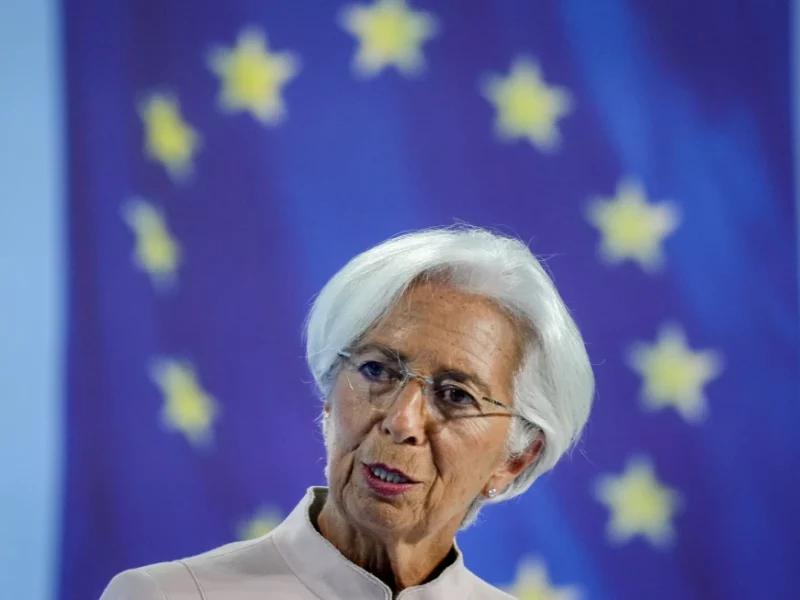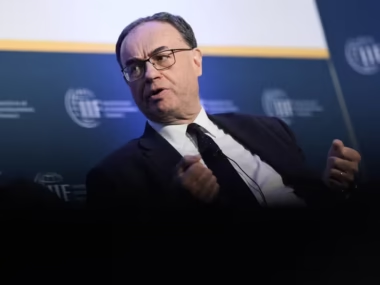On Monday, the leader of the European Central Bank, Christine Lagarde, affirmed that interest rates would remain at elevated levels for an extended duration to combat inflation, even though she expressed understanding for homeowners facing higher mortgage payments.
Lagarde emphasized that interest rates would stay elevated due to the persistent upward pressure on prices across the 20 nations utilizing the euro currency. She noted that factors such as robust spending on holidays and travel, along with rising wages, were impeding the decrease in price levels, despite the sluggish state of the economy. In August, annual inflation in the eurozone only marginally eased from 5.3% in July to 5.2%.
Lagarde affirmed to the European Parliament’s committee on economic and monetary affairs that their determination remained strong in bringing inflation back to their medium-term target of 2% promptly. She pointed out that while inflation was on a downward trajectory, it was still anticipated to persist at elevated levels for an extended period, stating, “Inflation continues to decrease but is expected to remain elevated for an extended duration.”
In response to questions from lawmakers, Lagarde acknowledged that the European Central Bank (ECB) was aware of the pain caused by its recent actions. The ECB had raised its benchmark deposit rate to an unprecedented 4% this month, following a rapid series of increases from minus 0.5% starting in July 2022.
Lagarde emphasized the ECB’s recognition of the challenges, stating, “Do we also have on our mind … what pain it inflicts? It is on our mind, I can assure you.” She pointed out that 30% of households in member states have variable interest rate mortgages, making them particularly vulnerable to rate hikes. Lagarde also highlighted the hardship faced by lower-income households, who allocate a larger portion of their income to essentials like energy. She stressed that the key to addressing these concerns was to swiftly return inflation to the 2% target, stating, “The faster it gets there, the more stable prices are, the less painful it will be going forward.”
Analysts believe that the European Central Bank (ECB) might be finished with its rate hikes due to indications of growing weakness in the European economy. In contrast, other central banks, including the Bank of England and the U.S. Federal Reserve, opted to hold off on rate increases last week as they approach the conclusion of their aggressive tightening campaigns.
The surge in inflation resulted from the global economic recovery following the COVID-19 pandemic, which caused supply chain disruptions. Additionally, the situation was exacerbated by Russia’s invasion of Ukraine, leading to soaring energy and food prices.
Christine Lagarde has stated that interest rates are now at a level where they can significantly contribute to curbing inflation if maintained for an extended period. The ECB anticipates inflation to decrease to an average of 2.1% in 2025 after reaching a record-high of 10.6% in October.
Higher interest rates serve as the primary tool for central banks to combat excessive inflation. They impact the cost of borrowing throughout the economy, making it more expensive for activities like home purchases or business expansions. While this helps curb demand for goods and subsequently inflation, it also carries the risk of restraining economic growth.
The ECB’s elevated interest rates have led to a notable slowdown in real estate transactions and construction, both of which are highly sensitive to borrowing costs. Moreover, they brought an end to the prolonged rally in home prices in the eurozone.
Lagarde mentioned that the economy exhibited a state of “broad stagnation” in the first half of the year and recent data points to “further weakness” in the July-to-September quarter. She cited ECB forecasts indicating an economic pickup as inflation declines, resulting in increased spending power for consumers. She stated, “we do not have a recession in our baseline.”











